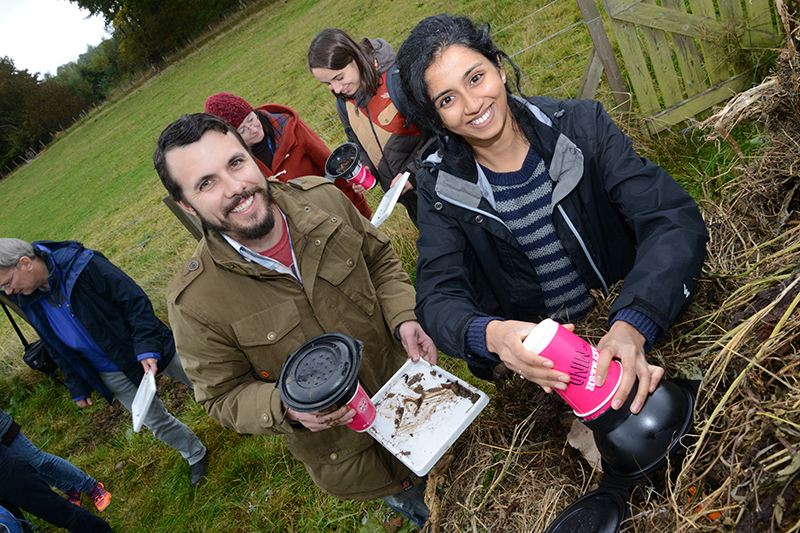From biodiversity theory to a living curriculum at the University of Edinburgh
Edinburgh University has taken a whole-institution approach across all of the University campuses, envisioning a “Campus for the Future”. As a founding member of The Nature Positive Universities Alliance, the University developed a biodiversity plan with seven commitments to protect, enhance and engage with biodiversity.
Sharon Boyd
From biodiversity theory to a living curriculum
There is a global biodiversity emergency, with the loss of more species than at any other time since the mass extinction event that impacted dinosaurs. Biodiversity (biological diversity) is a term that includes species and genetic diversity, and the ecosystems within which these species interact. Threats to biodiversity are threats to all life. In the face of this crisis, The Kunming-Montreal Global Biodiversity Framework was adopted at the 15th Conference of the Parties (COP15) in 2022 and will be revisited this autumn at COP16. Becoming “Nature Positive” is a “Global Goal for Nature” to halt nature loss at 2020 levels and begin to reverse that loss by 2030. To achieve this goal, humans need to act in partnership with the other species that co-inhabit the land on which we live and learn. Organisations, businesses and institutions are increasingly recognising their responsibilities in maintaining buildings and grounds as wildlife habitats. It is essential that learning and teaching about biodiversity concepts moves out of lecture theatres and labs as a transition from teaching to doing. Hands-on activities help to build skills, confidence and competence to the benefit of the individual and the place as part of a living curriculum that fosters creativity and curiosity in the face of complex challenges.
Edinburgh University has taken a whole-institution approach across all of the University campuses distributed across two counties, envisioning a “Campus for the Future”. As a founding member of The Nature Positive Universities Alliance, the University developed a biodiversity plan with seven commitments to protect, enhance and engage with biodiversity. Activities focused on enhancing biodiversity include monitoring, tree planting, beekeeping, veg growing and litter picking. Inviting all students and staff to participate in events on different campuses creates opportunities for interdisciplinary and multidisciplinary collaborations, and builds relationships between people and places. The Easter Bush campus is home to The Royal (Dick) School of Veterinary Studies and many species, including hedgehogs. Gold Hedgehog Friendly Campus accreditation is a good example of an activity that involved students and staff working in collaboration. Campus activities such as this have been incorporated into student projects and student-led research projects.
In 2023, Edinburgh launched its Biodiversity Literacy Training as a partner to the Carbon Literacy Training already on offer at the institution, accredited by the Carbon Literacy Project. The training is structured in the same way, with an online training module (~90 minutes) to be completed prior to attending the workshop. Participants then choose to attend an online or co-located half-day workshop, which brings together people from across the University. On completion of the training materials and workshop, participants complete a form outlining key lessons learned and planned actions. The actions proposed can be in the participant’s own space, neighbourhood, at the University, or a set of actions across all three areas. The form is reviewed by the University’s Social Responsibility and Sustainability team to confirm the participant can be recognised as being biodiversity literate. Writing this blog is part of my follow-up to the training, as we are all encouraged to spread the word!
For more information on the Biodiversity Literacy Training, please visit: https://www.ed.ac.uk/sustainability/events/biodiversity-literacy-training

Image ©University of Edinburgh. Students and staff at a worm release event on the campus veg garden.